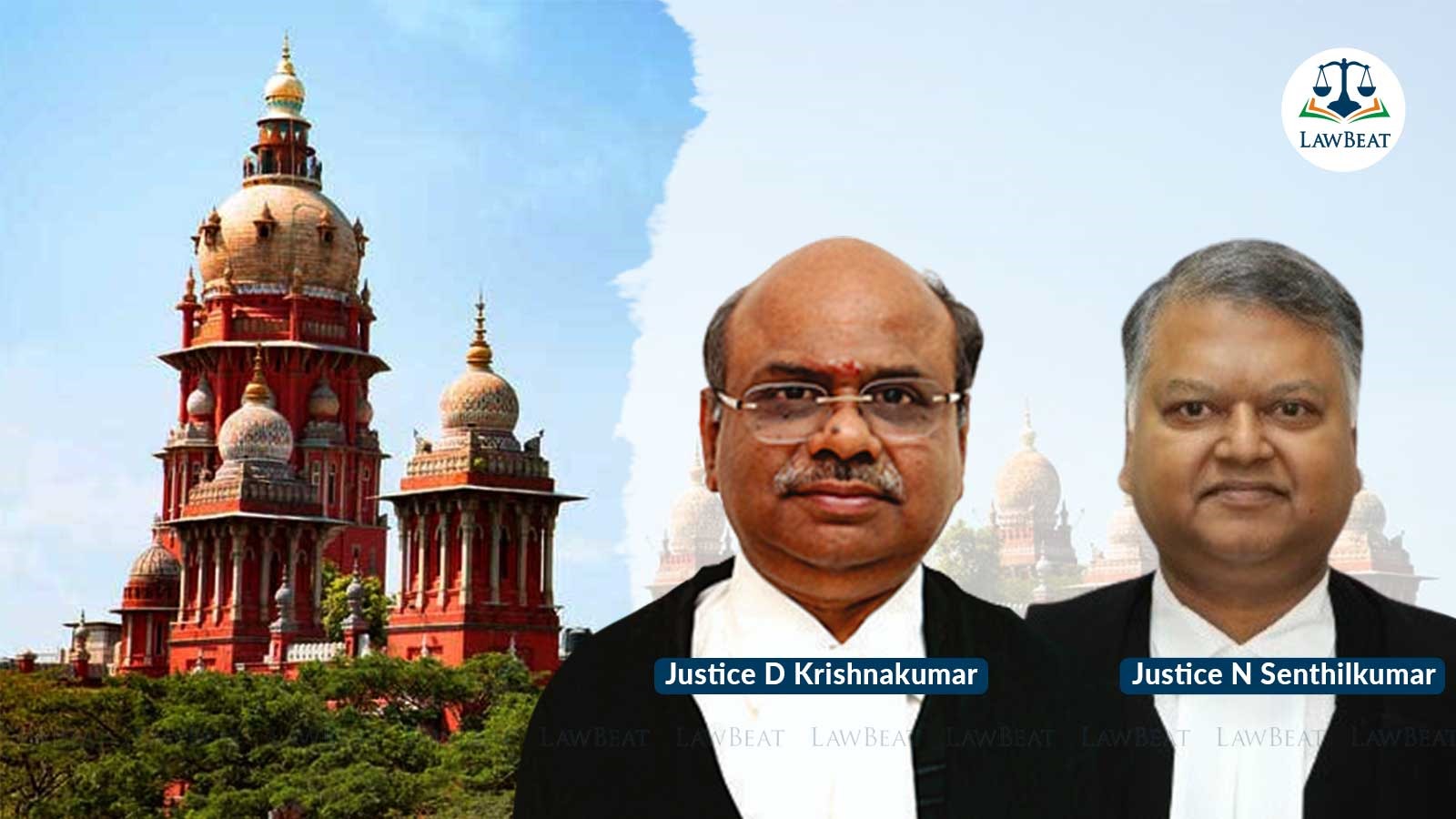Discipline Is Of Paramount Consideration In Military Services, Leniency Risks Disorder: Madras High Court

Court held that Harikrishnan's absence coupled with the fact that he did not choose to inform his superior authorities at any point in time during his unauthorised absence for 99 days was rightly viewed by his employer as a serious lapse
The Madras High Court recently observed that the paramount consideration is discipline in the military services and any lenient view will render great organisational disorder.
The court observed so while dismissing a writ petition moved by one S. Harikrishnan who challenged his compulsory retirement from service at the Commandant, Officers Training Academy, Chennai for wilful absence of 99 days from work.
Harikrishan had been punished with major penalty of compulsory retirement with effect from May 2016, just five years after he was selected as a Driver through Employment Exchange and posted at CMD, MT Section, Officers Training Academy, St. Thomas Mount, Chennai, in September 2011.
The charges against him were that he was sanctioned only 17 days of earned leave, but he did not return to work for 99 days.
The explanation given by Harikrishnan was that while he was on his sanctioned leave, he slipped down from the bathroom and sustained severe back pain in his lower back. He claimed that initially, the doctors advised him to take bed rest for 43 days but since he still could not walk properly due to the severity of the pain, doctors asked him to continue bed rest for another 56 days.
He submitted that meanwhile the Commandant, Officers Training Academy, Chennai issued a show cause notice directing him to report to duty within ten days. However, he could only resume duty over a month later.
Moreover, Harikrishnan claimed that during the inquiry, he gave his explanation that he did not undergo any surgery on the doctor's advice, he took only physiotherapy treatment and medicines. He also provided a medical certificate from the doctor. Despite this, the competent authority still found the alleged charges substantiated.
Harikrishnan challenged the punishment imposed upon him before the Appellate Authority narrating the circumstances that led to his continuous absence and sought reinstatement, but his appeal was dismissed. Subsequently, the Central Administrative Tribunal, Chennai Bench also upheld that his compulsory retirement on the ground of unauthorized absence.
Before the high court, his counsel argued that his absence was only because he had slipped and suffered injuries which prevented him from reporting for employment and the impugned orders were passed mechanically without any application of mind.
He also contended that the punishment awarded to him was disproportionate to the charge framed.
On the contrary, the Addl. Central Government Standing Counsel argued that Harikrishnan got employed with CMD, MT Section, Officers Training Academy which was under military service, therefore, any delinquency in such service had to be viewed seriously.
The division bench of Justice D. Krishnakumar and Justice N. Senthilkumar opined that on perusal of the facts and the materials placed before it, it appeared that Harikrishnan who was appointed through the Employment Exchange seems to have not considered the value of his employment seriously. "...that too when he has been employed in a force attached to the military service," court emphasised.
Court held that Harikrishnan's absence coupled with the fact that he did not choose to inform his superior authorities at any point in time during his unauthorised absence was rightly viewed by his employer as a serious lapse.
"If such unauthorised absence is not viewed strictly, it will set a bad precedent, especially amongst persons serving in positions in the offices of armed/military forces," court said
However, court clarified that it is common for such absences to occur, and any leave/absence must, to the maximum extent possible be authorised and an opportunity must be given to the Government employees before any action is proposed, to show cause if such absence was genuine.
Further, regarding the allegation of disproportionate punishment, court held that it was neither disproportionate nor something which shook the conscience of the court.
Court also highlighted that Harikrishnan had been given penalties on two earlier occasions, and he had been habitual in taking unauthorised leave.
Therefore, deeming it a serious indiscipline, court upheld the decision taken by the competent authorities against him.
Case Title: S. Harikrishnan vs. Union of India and Others
